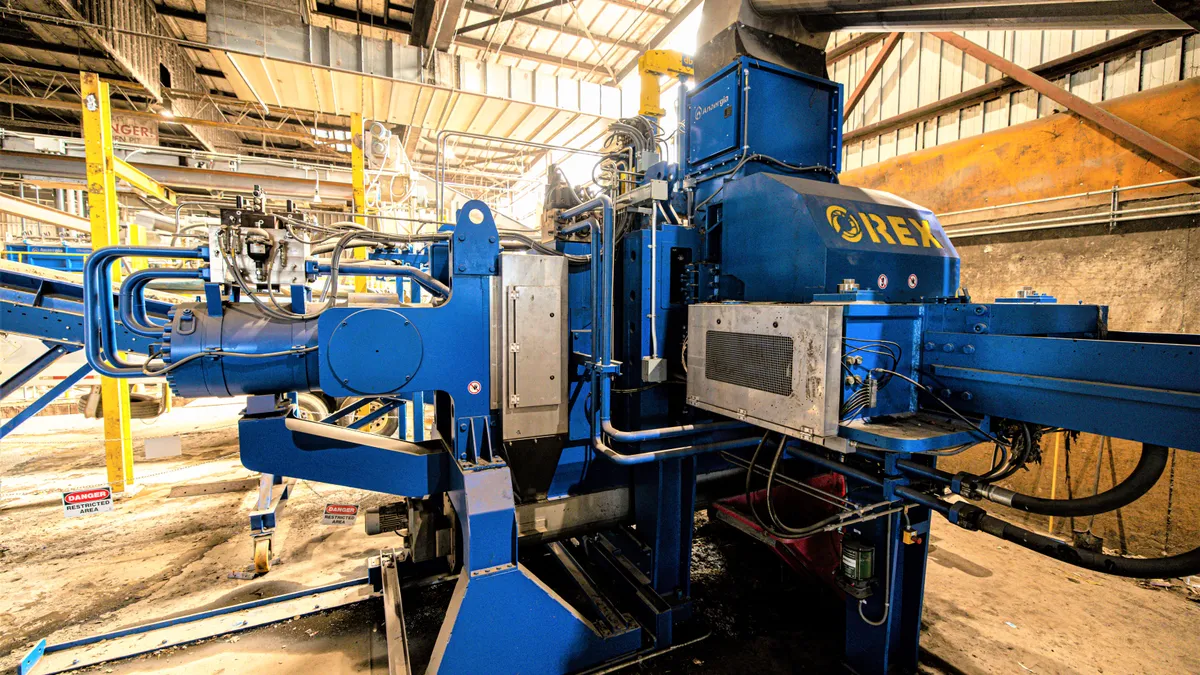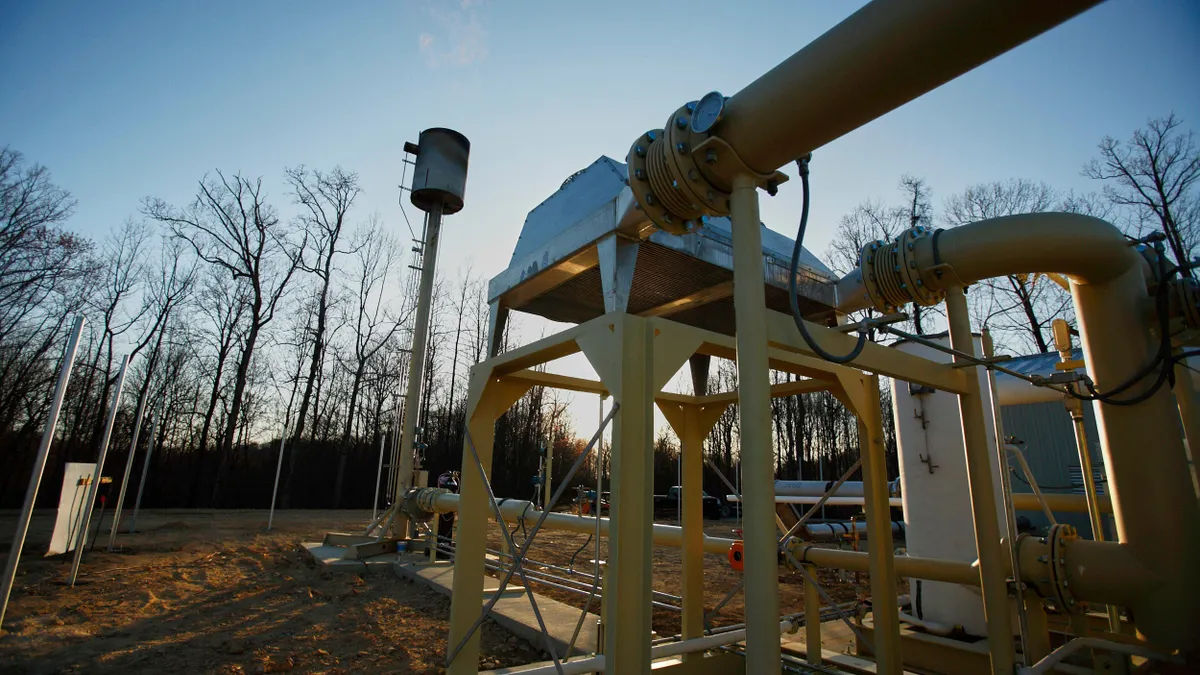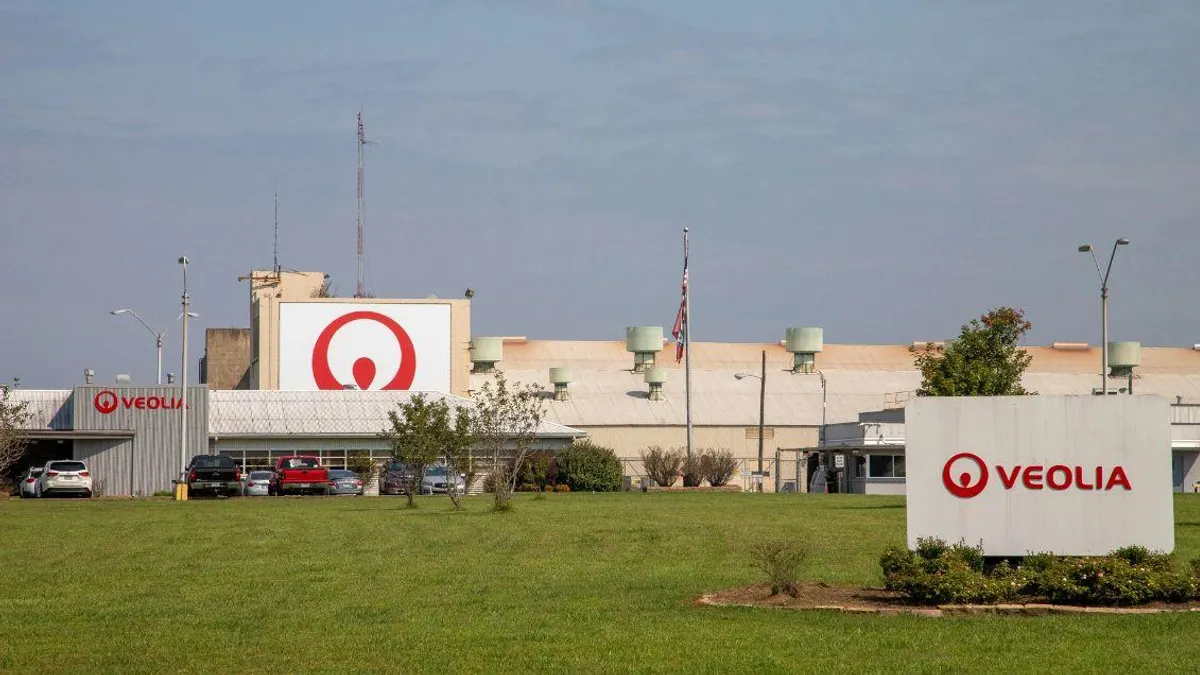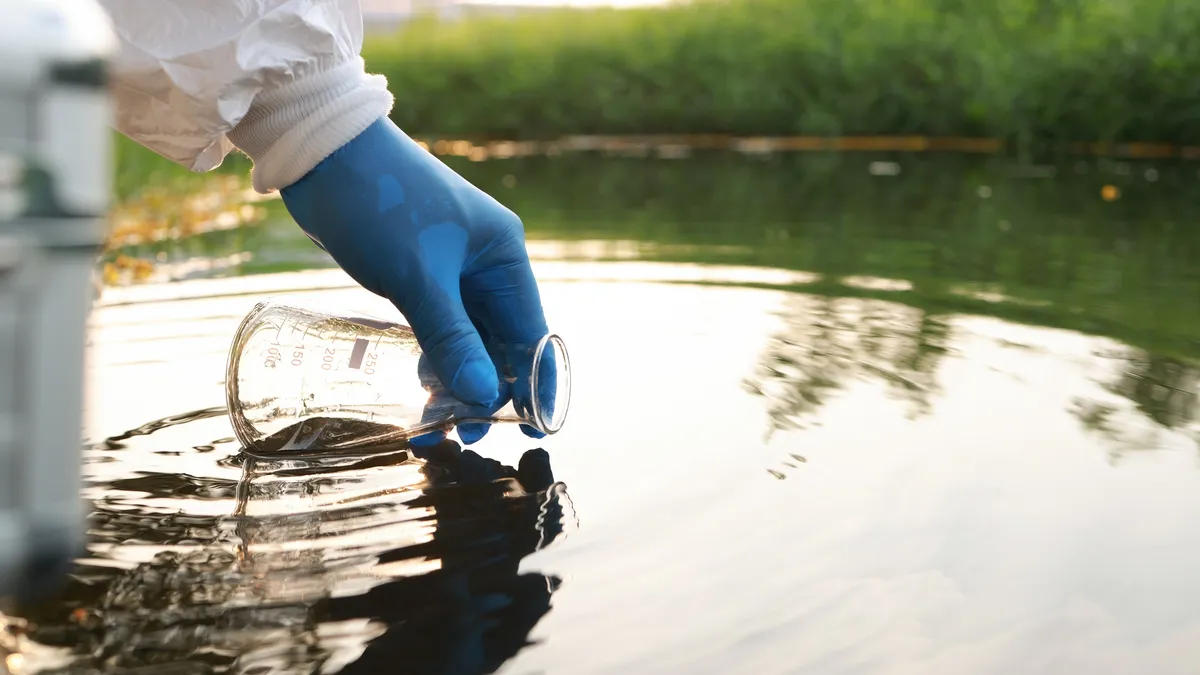As organics recycling activity incrementally expands around the country, California has become a major focal point ahead of new regulations set to take effect next year. Anaergia aims to be a key player in satisfying that demand throughout the U.S. as it continues to grow.
The international company has a sizable presence across four continents – including more than 1,600 projects and four manufacturing facilities – and bills itself as a uniquely integrated player in the U.S. market. So far, Anaergia's domestic presence is limited to California, including multiple active or pending installations, with the Rialto Bioenergy Facility being its main attraction. Billed as the largest anaerobic digester of its kind in the country – if not the world – the operation is capable of processing each day up to 700 tons of food waste and 300 tons of biosolids into renewable natural gas and fertilizer. The Rialto plant recently began receiving material and is in the final stages of commissioning.
In addition to demand driven by the state's requirements to reduce organic waste going to landfills 75% by 2025 under SB 1383, major cities including Los Angeles have also recently been pursuing their own organics policies and presenting new opportunities. That has led major players such as Waste Management, Republic Services and others to take steps such as purchasing Anaergia's Organics Extrusion Press pre-processing technology or contracting to send material to Rialto.
Waste Dive recently spoke with CEO and Chairman Andrew Benedek, who founded Anaergia in 2008 after spending years in the water sector that includes the formation and sale of a technology business to General Electric, about what's next for his company.
The following interview has been edited for length and clarity.
WASTE DIVE: The company has a major international presence. What made it feel like the right time to enter the U.S.?
ANDREW BENEDEK: I was living in San Diego, where I still live, and working at the Scripps Institution of Oceanography and understanding the impact that greenhouse gases will have on our planet. It got me to want to do something about it.
Frankly, the U.S. was not a great market. It was in 2007, and we weren't doing much. So I had to go to Germany, where they had favorable conditions for creating electricity from renewable gas, and that's how our company started. But it was always the intention to find European technologies – because I felt Europe is ahead of us – and bring them to America.
In the time that the company has been operational in the U.S., do you feel like the environment has gotten any more favorable for your technology?
BENEDEK: It has quite a bit recently, but initially it got worse. When I was ready to bring the technology to America ... the gas prices sank. And if you're going to make gas, the gas price is super important. And eventually, step by step, the gas prices became better for renewable natural gas. And right now, frankly, it's as good as it gets in the world.
I know the goal is to replicate your existing U.S. operations beyond the current portfolio. Do you see opportunity to do something like this again in California to help the state meet its goals?
BENEDEK: Certainly, and we have been positioning ourselves to serve 1383. So we started working already in California, because it's where I live and we put together a first rate team for the U.S. here, but things have been slow. I think now they'll accelerate. In the interim, we managed to have a few installations that serve as model installations that give encouragement to the community that there are cost-effective solutions for handling this organics legislation. Now that the regulations are promulgated, many cities are starting to say "what do we do?" because they don't want to be in trouble.
We're seeing a range of approaches in California to meeting this goal, including a lot of composting investment as well. What do you expect to see coming next for the competitive dynamics of new facilities and capacity in addition to what's already there?
BENEDEK: There will be different solutions, and we are of course open to working any of those, but most cities will have to make a choice. They either have to have a facility that can handle organic waste within the black bin, or organic wastes will have to be sorted in the home and added to the green waste, or collected on its own. There will be examples of all three of these, and we work on all three of these in Europe right now. We think that by far the best solution is to leave it in the black bin.
It all began with what people in Europe, and here too, call source separated organics. So you have a separate collection, just for food waste. The problem with that is that the collection costs are very high, a couple hundred dollars a ton, versus say $50 on average per ton. Because you're collecting small quantities and you can't leave it for very long, because it degrades.
The second – a little lower-cost solution – is to take the food waste and put it in with the green waste and send it to composting. There are two problems with that. The green waste was always going to composting, but if you add the food waste there's a limit to how much food waste you can add because of certain ratios and smells. But the biggest problem is that you're not going to meet the intention of 1383. 1383 requires 75% of the organics be removed from landfills. And our experiences when this is required, both in Europe and in Canada, you don't have anywhere near 75% of the food waste actually going to the green bin. And so typically 50% to 75% of the food waste goes into the black bin. That's our experience in Toronto, where we have a plant working on separately collected food.
So you either go to composting, or some people want to do it by anaerobic digestion and then perhaps composting. The advantage of doing anaerobic digestion is that you get the gas and the gas now has a decent price. And there's a limit on how much food waste you can put into composting, so it's helpful. The problem, of course, is that the method of anaerobic digestion that you use is relatively expensive. And it's incomplete because you're transporting a lot of stuff that is not degradable in the green waste.
The third option that we think is the most cost effective solution, both for the city and for recovery of value, is to leave it in the black bin then extract the food waste from the black bin. There's no separate collection. So that cost goes away. Instead of 25% of the food waste, you get 85% to 90%. You extract the food waste. You then take it to an anaerobic digester where only the food waste goes in, not the undigestible parts of the green waste, and then you make the maximum amount of energy, and you get a quality fertilizer. And that's what we're doing at Rialto.
Do you think some people are put off by the higher capital costs of a digester versus a composting operation? Or are other factors driving facility decisions in California?
BENEDEK: There are many issues. One, composting is more common. It's been around, people are used to it. But if you have to actually do in-vessel composting, that's not cheap either. The anaerobic digestion may upfront have higher costs, but just look at the comparison. In composting, you actually have to add energy. In anaerobic digestion you make energy, you make a valuable product, you take out some of the source energy, and you turn it into renewable natural gas. And that gas will pay for the plant. So net-net, after you take revenue incomes versus capital, I think there's at least as good a return – we think a better return – by going to digestion in today's market.
And by the way, we are willing to finance any and all of this. I think it's a no-brainer, really no risk for the waste hauler and also the city.
You're international, but California has been the main focus so far in the U.S. Are there aspirations to replicate this in other states? And if so, what types of markets would be most suitable?
BENEDEK: We go where the conditions are right. And for the conditions to be right you typically need some kind of incentive for either the gas or compliance on the waste hauler. Because there's no reason for a company to do this, just for the general greenhouse gas benefit. I don't think companies should be expected to do that. They are there to do their best for their shareholders. In the meantime, be proper and follow good ESG principles. But we don't want to bet on people being nice. We want to bet on the right conditions so that economically it makes sense.
So California has both. California has strong legislation and incentives for the gas. Now, the incentives for the gas are across the nation. So that's a good thing. And what we're seeing is that in the Northeast, the central and north central states, there's more and more attempt at regulation. They don't have a lot of teeth in them, but they're there. And secondarily, what's an interesting driver is that in the Northeast you are running out of landfills. So that means that the other way to subsidize these plants is tipping fees.
So you combine the tipping fee rising with favorable legislation – if not penalty-based regulation – and with good gas prices, it means that for us now the Northeast becomes an interesting area. We are starting to invest in this. We have some people now fully focused on the Northeast.
Do you anticipate more upcoming projects in California as well?
BENEDEK: Absolutely, this is our base. I just have a few people in the Northeast, which will build up as the market opens. But here we see a market growing and we already have six installations. As a company we have well over 1,000, but most of them are in Europe. So gradually, we're building them and they're going to be big scale, because the U.S. is big scale, and repeatable. So we are very excited about the U.S. market.
We are one of the few organics handling companies that is based in America. Usually the Europeans come to America, but they don't fully understand the conditions here. So we actually acquired and developed technologies specifically for the American market to come, and our patience is starting to pay off. We are a little different from everybody else, because we handle all elements all the way to making drinking water and fertilizer and gas. Everything is supplied by a division of ours.
Do you have any hopes for what policies you might see at the national level under the new Biden administration and new Congress?
BENEDEK: You know, I'm a little worried about the Biden administration understanding the importance of this area. The solar lobby and the wind lobby are usually much more effective in Washington than the biogas lobby. And I think people don't understand that biogas is a great opportunity for renewable energy.
If 1383 is fully implemented, it's the equivalent of taking 9 million cars off the road. So most people think about electric cars as a big advancement. Taking care of garbage properly is actually a bigger investment, because not only do you solve the equivalent amount of greenhouse gas issue you also help the environment. And if you turn the residues into a fertilizer or soil conditioner you help the soil, you help agriculture, you prevent building more landfills. So it's a huge win all around.
So it sounds like you're hoping they will at least pay more attention to the potential of biogas?
BENEDEK: All I'm hoping for is to be treated equal.


















